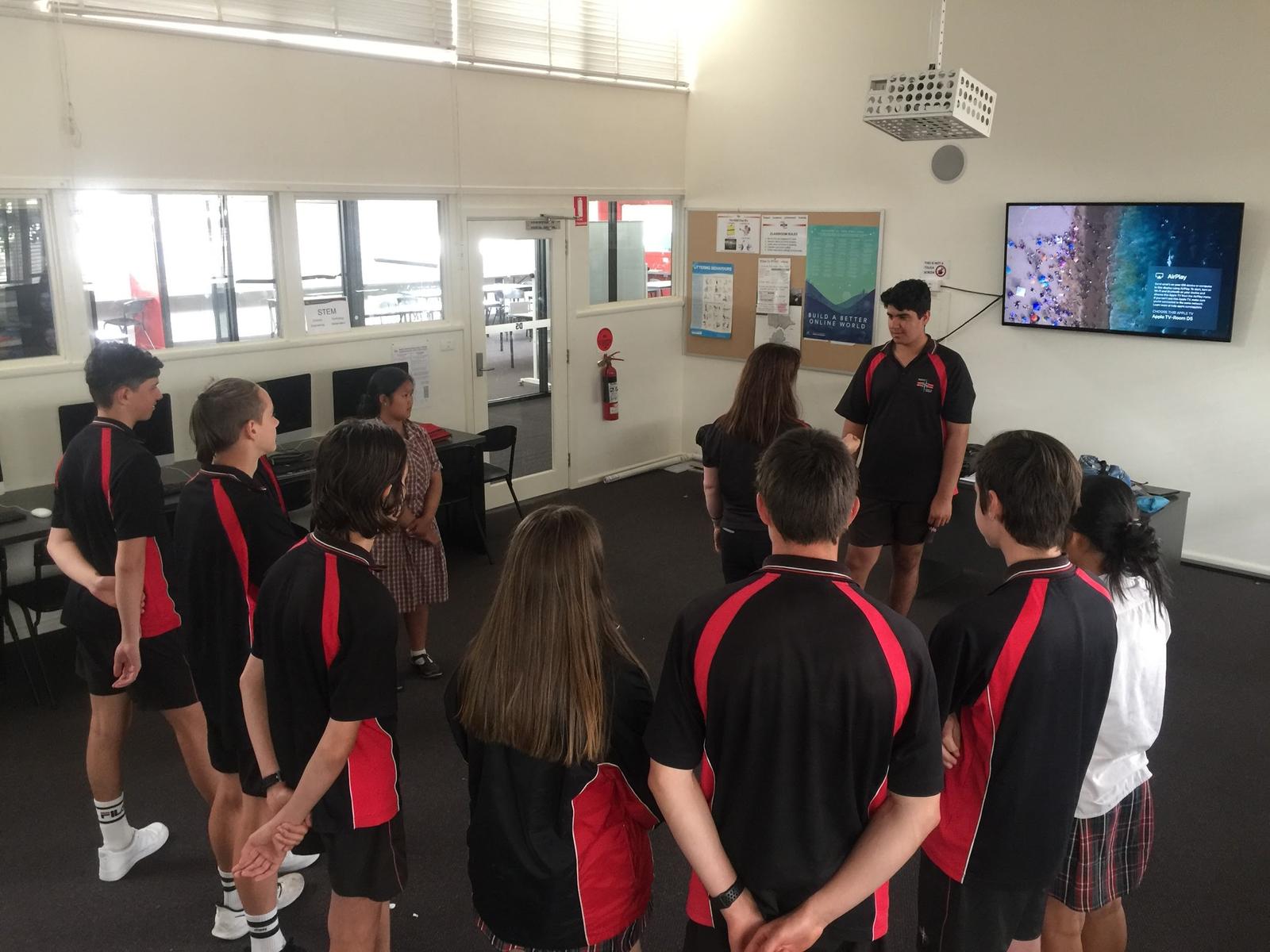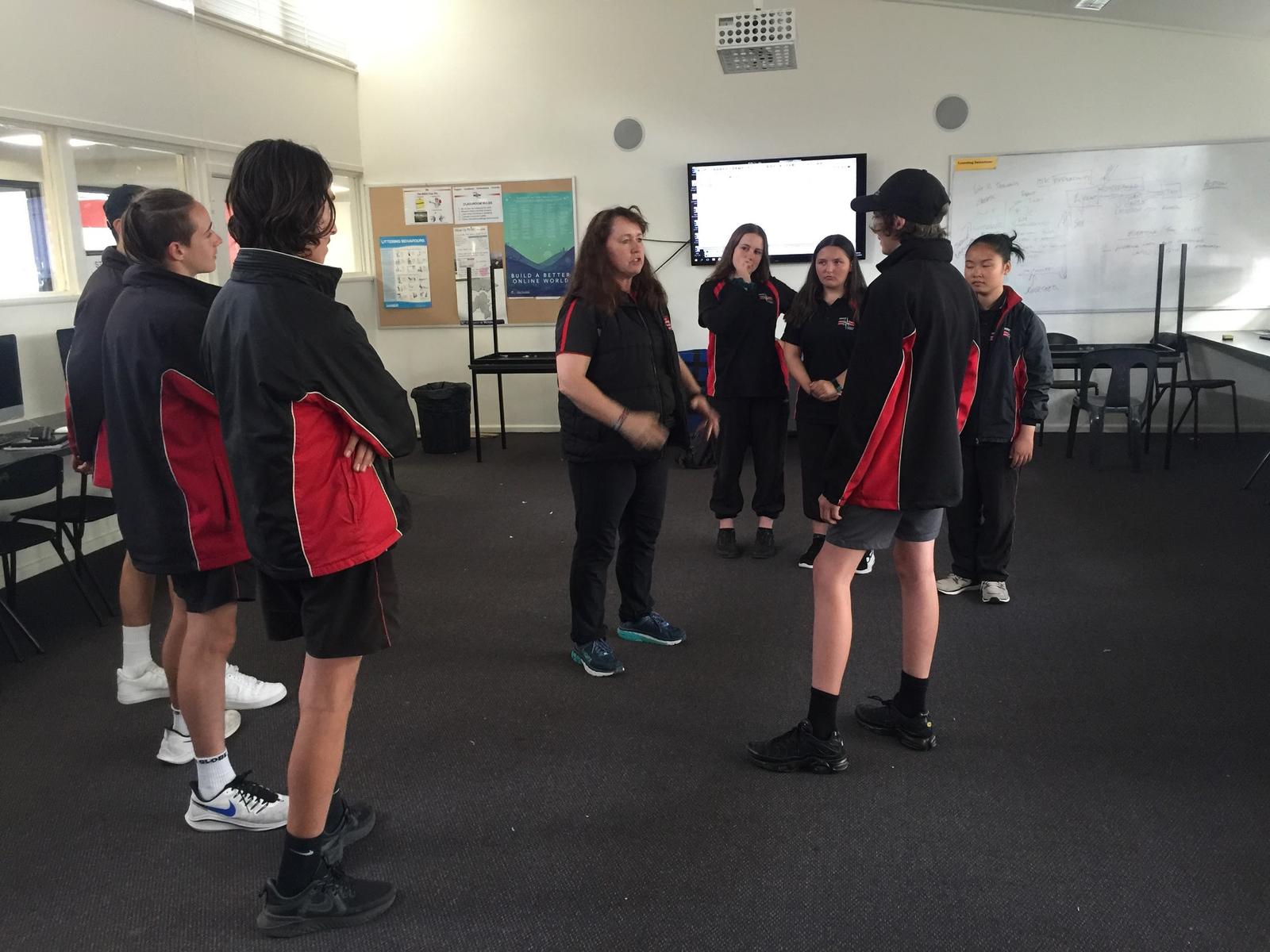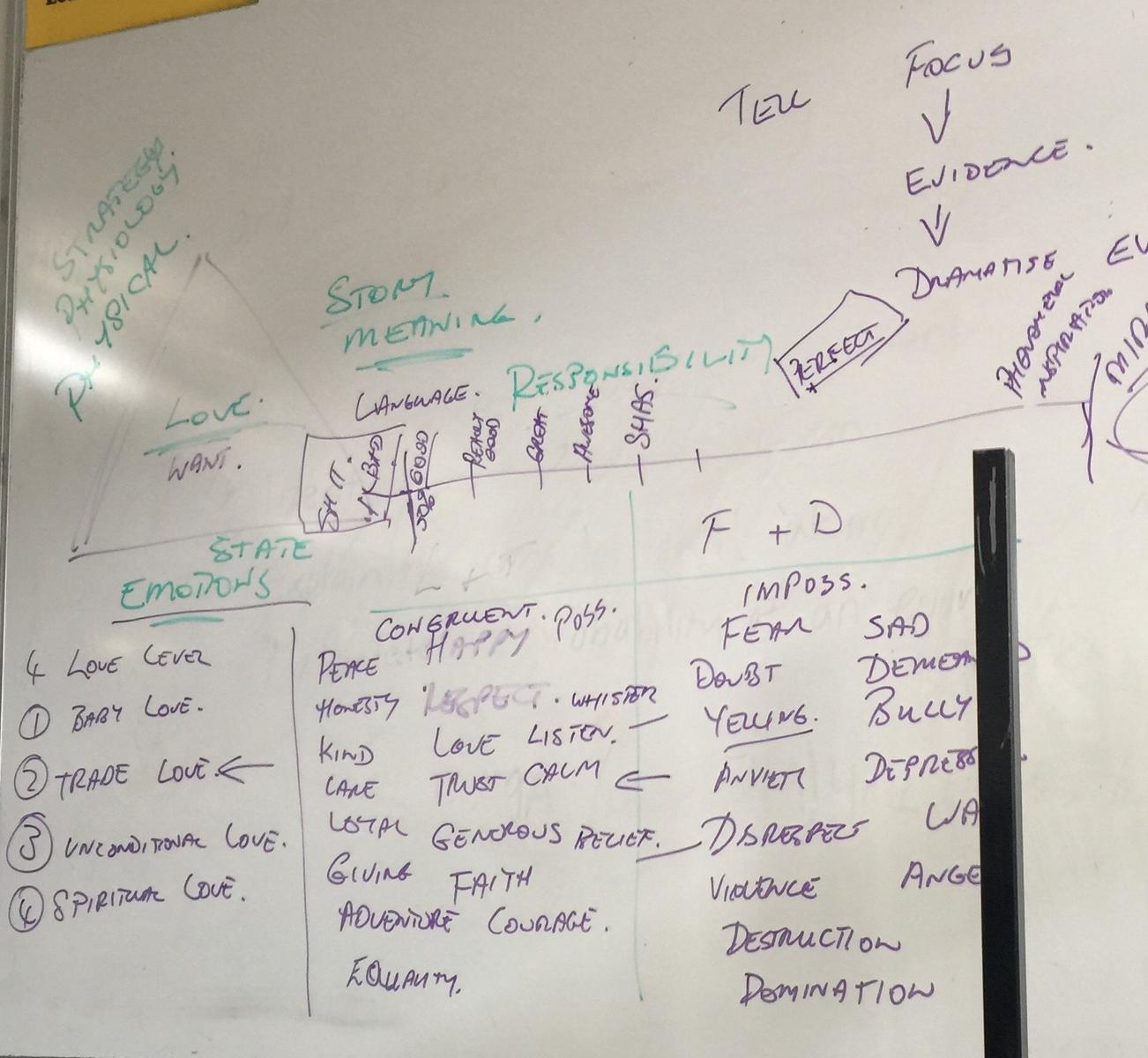
MIDDLE SCHOOL NEWS
Simon Scoullar
Middle Sub School Leader
I hope to see everyone at our Awards Evening on Monday, 16 December. It is a nice way to finish the year and celebrate the growth of our students. Unfortunately, Elizabeth Fagan will not be there as she will be in Europe.
How to keep your kids safe while you're working these holidays
The Conversation
By Natalie Gately
Natalie is the Undergraduate Criminology Courses Coordinator, a Senior Lecturer, Researcher and Higher Degrees Supervisor (Psychology/Criminology) in the School of Arts and Humanities.
Many working parents battle with school holidays, especially the long period between Christmas and the start of the new school year.
Most people receive four weeks' leave a year, but school holidays take up about 12 weeks of the year.
The maths clearly doesn't add up. Even if both parents take their leave at different times, they'll still need to find alternative care arrangements for younger children. Older kids will spend days at home unsupervised.
Leaving young people at home raises questions and concerns for parents. How long can they be at home alone? How can I ensure their safety? How will they occupy their time? What if someone comes to the house? Should I let them leave the house during the day to visit a friend? How secure will the house be?
Based on our soon-to-be-published findings on young offenders and previous research into home security (particularly burglaries), the following advice may provide guidance for concerned working parents during school holidays.
What do burglars look for?
Most burglars reported they are motivated by opportunity and convenience. They look for unoccupied homes with open doors and windows in daylight hours. Teach your children how to operate door locks, ensuring front and back doors stay locked. But keep keys in locked doors in case they need to exit quickly.
Most burglars avoid homes if they detect someone is present. So there is a fine line between making the house occupied, while ensuring children do not open doors to strangers. Ensure your children know your rules on letting someone in the home without your permission or answering the door to anyone they don't know. Have a plan on how to respond to this.
It's also worth ensuring that you:
- check your children know how to phone triple 0 in the event of an emergency. Write down your full name, address and telephone number and keep it by the phone. Kids (and adults!) can panic in emergencies and forget basic details
- write down a responsible available person's number if you are at a job that cannot take phone calls
- create a family "phone book" with each family member's particular friends. Make sure you know the names and phone numbers of their closest mates. That way if you ever lose your child or they do not return you have a starting point to phone their friends
- limit time online and install security software that allows you to monitor online activity and avoid online predators.
Keeping kids out of trouble
While most parents believe their child would never engage in antisocial behaviour, the lack of supervision and structure during school holidays can lead some children to push boundaries or even break the law, especially when encouraged by peers.
Our interviews, soon to be released, with children who had been charged with an offence indicated they committed the burglary during daylight hours in the company of friends and for consumable items.
Very few actually "planned" their offences. Most just saw the opportunity (goods left on display, doors and windows left open) while they were roaming the streets looking for something to do. And often they were responding to dares by friends. The most common tactic to determine whether to burgle a property was simply to knock on the door to see if someone was in.
So, if your child is allowed to go out while on school holidays, here are some parameters you can consider for their safety:
- agree on times they can be outside while you are not home (and limit extended periods of time)
- agree on where they are allowed to go — locations that provide pseudo-supervision (such as shopping centres) are preferable to long periods of street-wandering
- make sure they know not to go near people in cars who stop to talk to them (do not approach the car even if the person is speaking quietly). Explain that most adults do not ask young people for help — they usually ask other adults — so children must be wary of assisting adults when they are alone
- instead of telling children never to talk to strangers, tell them if they need help to look for a mother with children or go into a public place (like a shopping centre) and ask for help
- notice if your child seems to have excess funds or new items in the house. Investigate further if they tell you they have been "given" or "loaned" something from a friend
- notice if they seem quiet or reluctant to tell you how they have spent their day.
If you've allowed your child to leave the home when you're not there, there are still things to consider when they return to an empty house:
- have a lockbox for spare keys so they can re-enter the home 10 per cent of burglars reportedly entered a home with keys left in easily detected locations)
- given burglaries are often committed during daylight hours, teach children to have a quick "sweep" of doors and not to enter if something looks out of place (such as a door that is now open or a damaged fly screen)
- ensure they phone you or another responsible adult when they return.
By following these tips you can help keep your child safe and out of trouble when leaving them alone during the holidays.
Julie Elkin
VCAL Teacher
Year 9 Community Engagement
The Year 9 Community Engagement has been engaging with Fiona Skene over the last three weeks. Fiona’s aim is to teach and assist people to gain vital life skills. She wants to empower people to make positive decisions in their lives so they can take control and live a more fulfilling life. By taking control of their life and choices, people can live in freedom to enjoy life.
The first part of our sessions have been dedicated to building self esteem and the type of person you want to be. Her discussions are intermingled with personal stories from her life and her employment in the Justice Department. The second part of the session was self defence. Fiona is a fully qualified Taekwondo instructor and obtained her black belt in 1987. She has been teaching self defence since 1990. She is currently studying Ninjitsu as part of her ongoing personal development.
Fiona has represented Victoria and Australia in her sport, and is a four-time Victorian Champion, two-time runner up, three-time Australian Champion and once runner up. She also finished a bronze medallist in the Turkish International Championships.
The students were in awe of her talents, especially some of the boys, who had previously boasted that they ‘would like to see her throw me down’. Her quick reflexes and exceptional strength baffled most of the students.
Hopefully the students gained some insight into how to look at their life and ‘change the story’ to that of a more positive outlook for themselves and others, as well as learning some techniques that could stand them in good stead if ever in the need of defending themselves against an attacker.






